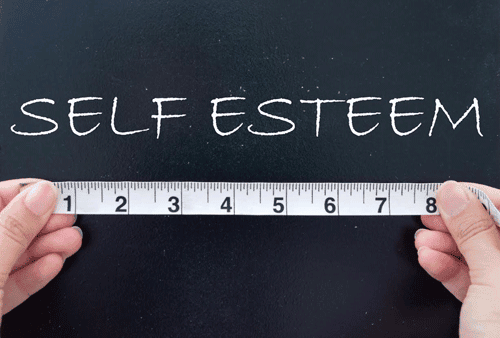Self-Confidence vs. Self-Esteem
The difference between self-confidence and self-esteem:
 Confidence and self-esteem are often confused with one another, when in fact there is something unique and different to be said about them both individually. “Confidence” comes from the Latin confidere, meaning “to trust.” To be self-confident is to trust in oneself, particularly in one’s ability or aptitude to engage successfully or at least adequately with the world. The more successful and positive experiences we have in a designated area helps increase our self-confidence in that skill or area of interest. However, it is possible to be self-confident in a specific area such as writing or sports, yet simultaneously feel insecure in another area (for example, cooking).
Confidence and self-esteem are often confused with one another, when in fact there is something unique and different to be said about them both individually. “Confidence” comes from the Latin confidere, meaning “to trust.” To be self-confident is to trust in oneself, particularly in one’s ability or aptitude to engage successfully or at least adequately with the world. The more successful and positive experiences we have in a designated area helps increase our self-confidence in that skill or area of interest. However, it is possible to be self-confident in a specific area such as writing or sports, yet simultaneously feel insecure in another area (for example, cooking).
“Esteem” is derived from the Latin aestimare, meaning, “to appraise, value, rate, weigh, estimate.” Self-esteem is our cognitive and, above all, emotional appraisal of our own worth. More than that, it is the matrix through which we think, feel, and act, and reflects and determines our relation to ourselves, to others, and to the world. Basically, it’s the value you see yourself having in relation to the world and other people. Self-esteem is more about your view of yourself as whole, whereas self-confidence tends to be categorically specific and may vary depending on your unique strengths.
The two do not always correlate directly. We see it all the time; someone who is relatively self-confident in their job or certain capabilities, but may still have relatively low self-esteem overall. Take, for example, professional athletes who are incredibly skilled in their profession but who battle with addiction to alcohol and/or drugs.
When you have healthy self-esteem, you won’t be fixated on externals such as socio-economic status, titles, money, ownership, relationships, and materialistic items. You are more likely to take care of your health and wellness, respect your relationships with others and yourself, and you’re less likely to lean on external sources to feel better about yourself. Having a healthy sense of self-esteem does not mean you are invulnerable to pain or emotional hurts. Instead self-esteem allows you to exercise more resilience in the moment, and as a result it allows for an opportunity for emotional growth and deeper relationships with others.
Here are 5 ways you can work to build your self-esteem:
1. Positive self-talk:
Don’t put yourself down or continue to feed into self-defeating thought processes. Practice being grateful, forgiving and patient with yourself, after all, we are human and part of that is making mistakes sometimes.
2. Don’t compare yourself to others:
Celebrate your differences that make you uniquely you. We all have difference strengths and weaknesses but someone else’s strength does not diminish our own strengths…unless we let it.
3. Progress not perfection:
Be patient. Be kind to yourself. Allow yourself the opportunity to grow in your own process. It doesn’t happen overnight, it will take time and diligence.
4. Do things you enjoy:
Find things you love to do and do them often. Explore hobbies or skills you’re good at and enjoy finding outlets to experience more of those interests.
5. Celebrate the small stuff:
Every opportunity to grow is equal in impact, big or small, they all have a purpose. It’s easy to dismiss the small work in comparison to some of the larger feats ahead. Every step of growth is a step in the right direction. Allow yourself to feel good and satisfied with the progress you make.
